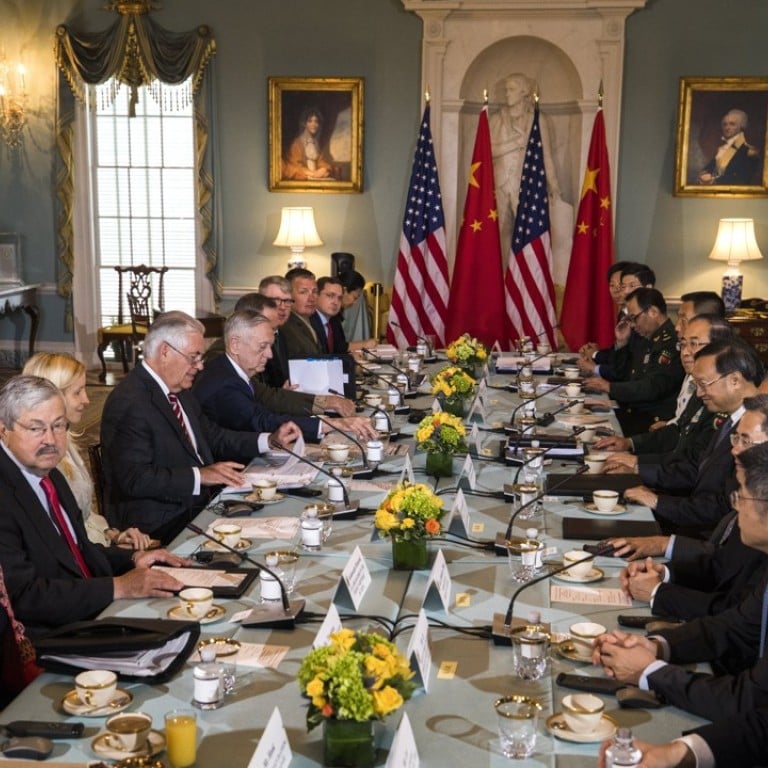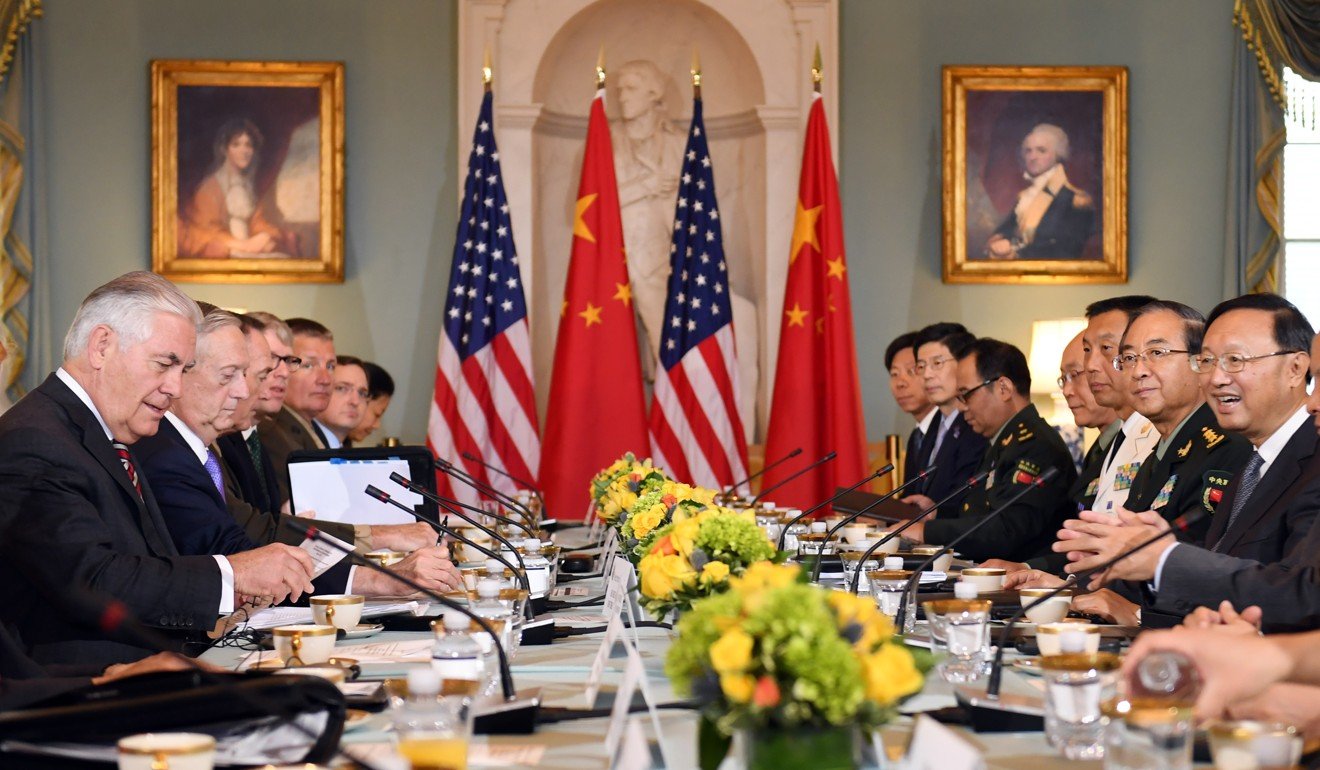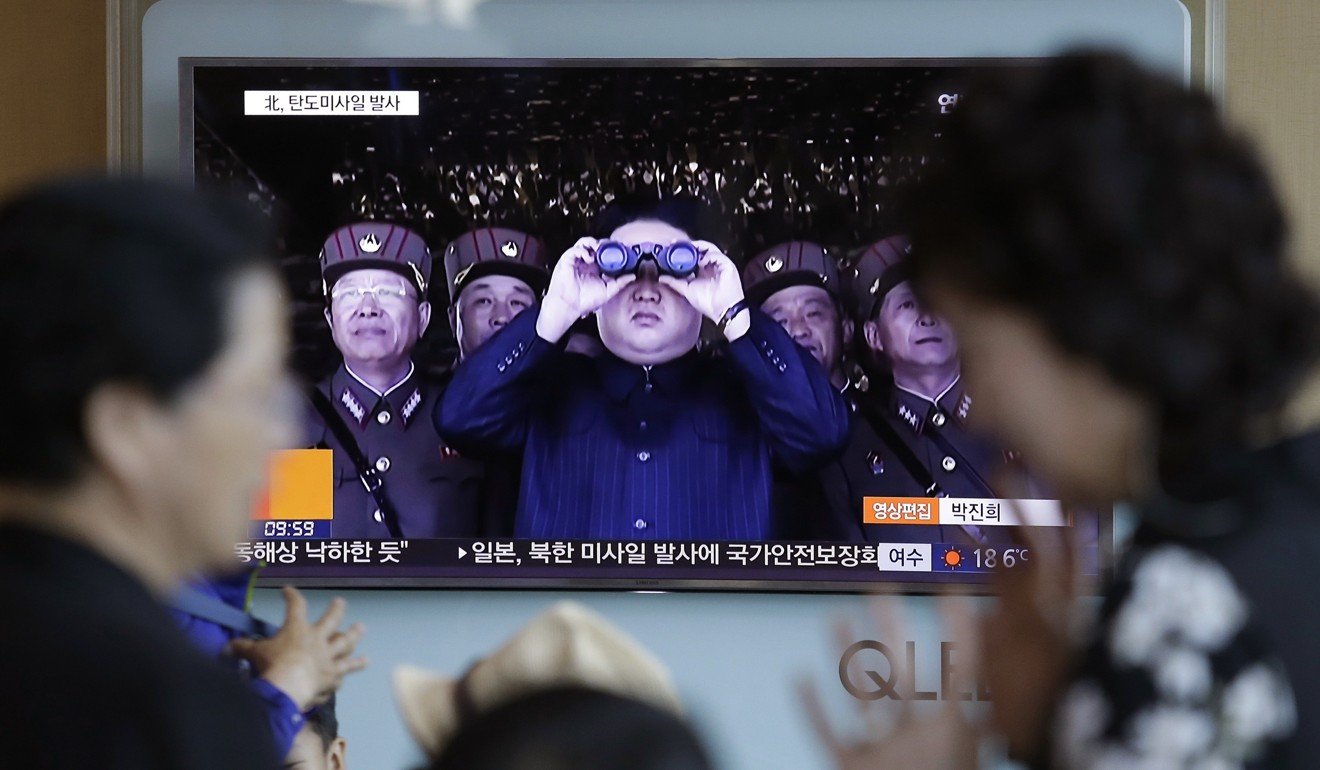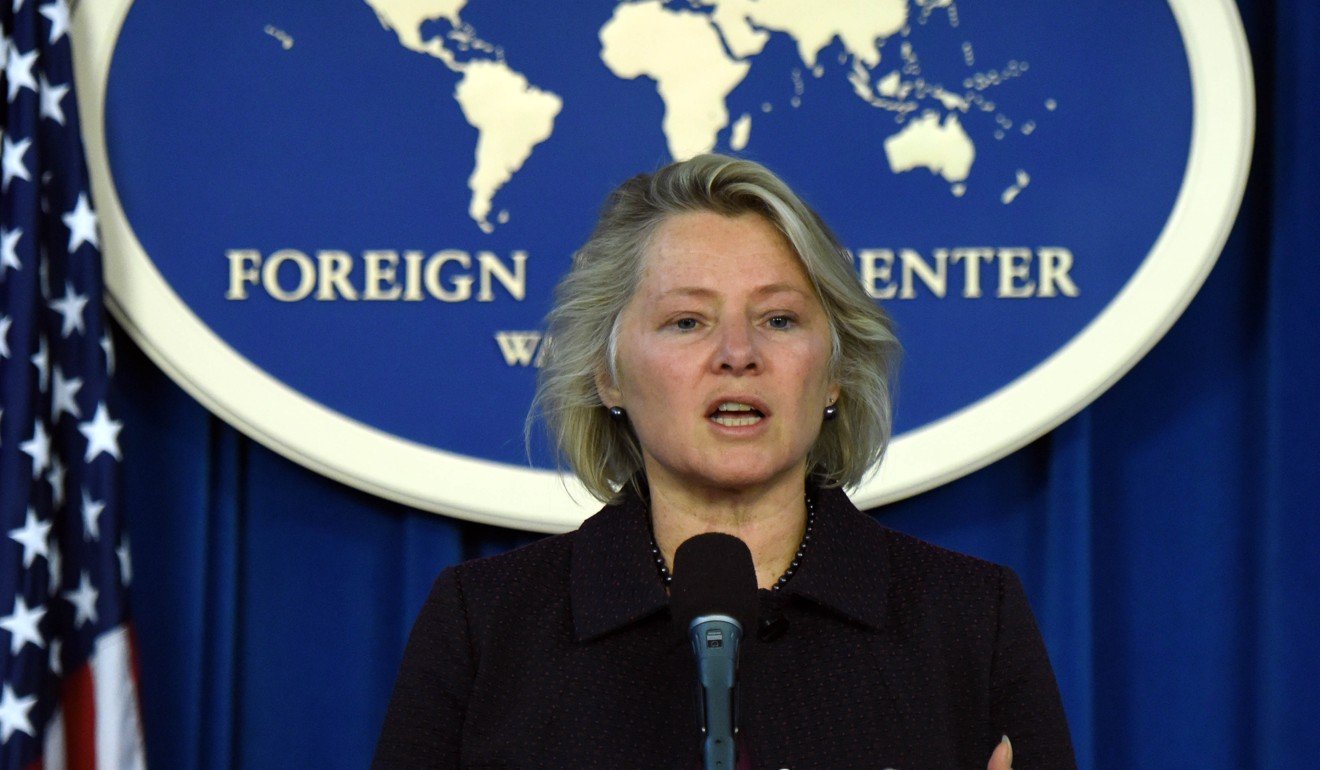
China and US kick off security talks amid tensions on Korean peninsula
Top officials sit down for inaugural dialogue expected to focus on North Korea but the meeting is only the first step on long road, observers say
China and the United States held their first diplomatic and security dialogue in Washington on Wednesday amid rising tensions on the Korean peninsula.
US Secretary of State Rex Tillerson and Defence Secretary Jim Mattis hosted Chinese foreign policy chief Yang Jiechi and PLA General Fang Fenghui, vice-chairman of the Central Military Commission for the talks at the State Department. The diplomatic and security dialogue is one of four high-level mechanisms established during the Mar-a-Lago meeting between Chinese President Xi Jinping and US President Donald Trump in Florida in April.

Trump has been counting on China to use its economic leverage with the government of North Korean leader Kim Jong-un as American concern grows over Pyongyang’s acceleration towards having a nuclear missile that can strike the US mainland. Trump tweeted on the eve of the security dialogue: “While I greatly appreciate the efforts of President Xi and China to help with North Korea, it has not worked out. At least I know China tried.”
In Beijing, officials insisted they had not given up hope of influencing Pyongyang but said the problem was not China’s alone. Foreign ministry spokesman Geng Shuang said China was not the “focus and the crux” of the crisis. “In order to resolve the Korean peninsula nuclear issue, China has been making unremitting efforts and we have been playing an important and constructive role,” Geng said.
Diplomatic observers said the elevation of the level of security dialogue underlined not only the urgency of establishing a crisis-management mechanism between China and the US, but also laid bare subtle changes in Washington’s perception of a rising China.
Huang Jing, of the National University of Singapore, said that as China’s international clout had grown over the years, Beijing’s security interests had expanded markedly to cover regions beyond Asia Pacific, and especially as it pushed its belt and road trade and infrastructure initiative.
“While the US might not yet have come to terms with China’s rise, and despite the fact that China and the US have not had much cooperation on security issues in the past, it has now become so acute that they must find ways to manage their divergent strategic, security and economic interests,” he said.
Some observers have said that North Korea’s nuclear brinkmanship poses an immediate threat to both China and the US in the absence of an effective, long-term mechanism to address their often conflicting interests over security-related issues.

“Both sides will have to work out ways to rein in North Korea and roll back its accelerated nuclear weapons programmes, but establishing a security mechanism to manage their differences and avoid the escalation of simmering tensions into conflicts, as the US and the Soviets did during the cold war era, is arguably even more challenging,” Huang said.
While the staging of two-plus-two meetings is common between US secretaries of state and defence and their counterparts among Western allies, observers noted that this was the first time Beijing had agreed to have this kind of in-depth, issues-driven talks with Washington.
Teng Jianqun, director of American Studies at the China Institute of International Studies, said such talks showed that both sides were inclined to be “more practical and forthright” in handling specific challenges to their delicate, and sometimes tumultuous ties. “They will need to establish a new channel of communication first and sort out how to make such a dialogue work at their first meeting,” Teng said.

Compared to the Strategic and Economic Dialogue, which had since 2009 been the key platform for bilateral talks under the Obama administration, pundits are hopeful the new dialogue, along will be more productive.
“Both sides wish to streamline the mechanism and improve its efficiency. The [security] dialogue itself demonstrates the importance the two countries attach to the relationship and their desire to achieve a results-oriented outcome,” Zhiqun Zhu, director of the China institute at the Bucknell University in Pennsylvania, said.
In a briefing on Monday, Susan Thornton, the top US diplomat in charge of Asia affairs, also confirmed widespread discontent in Washington with the Strategic and Economic Dialogue, which she said had “become overburdened with ceremony”.
“[T]there were too many issues to cover [which made it impossible to focus on] any issue in depth and make substantive progress,” said Thornton, the acting assistant secretary for East Asian and Pacific affairs. The new security dialogue was going to be an issues-based one, which was aimed at getting progress on “our most difficult and urgent challenges”, she added.
Additional reporting by Associated Press and Agence France-Presse

